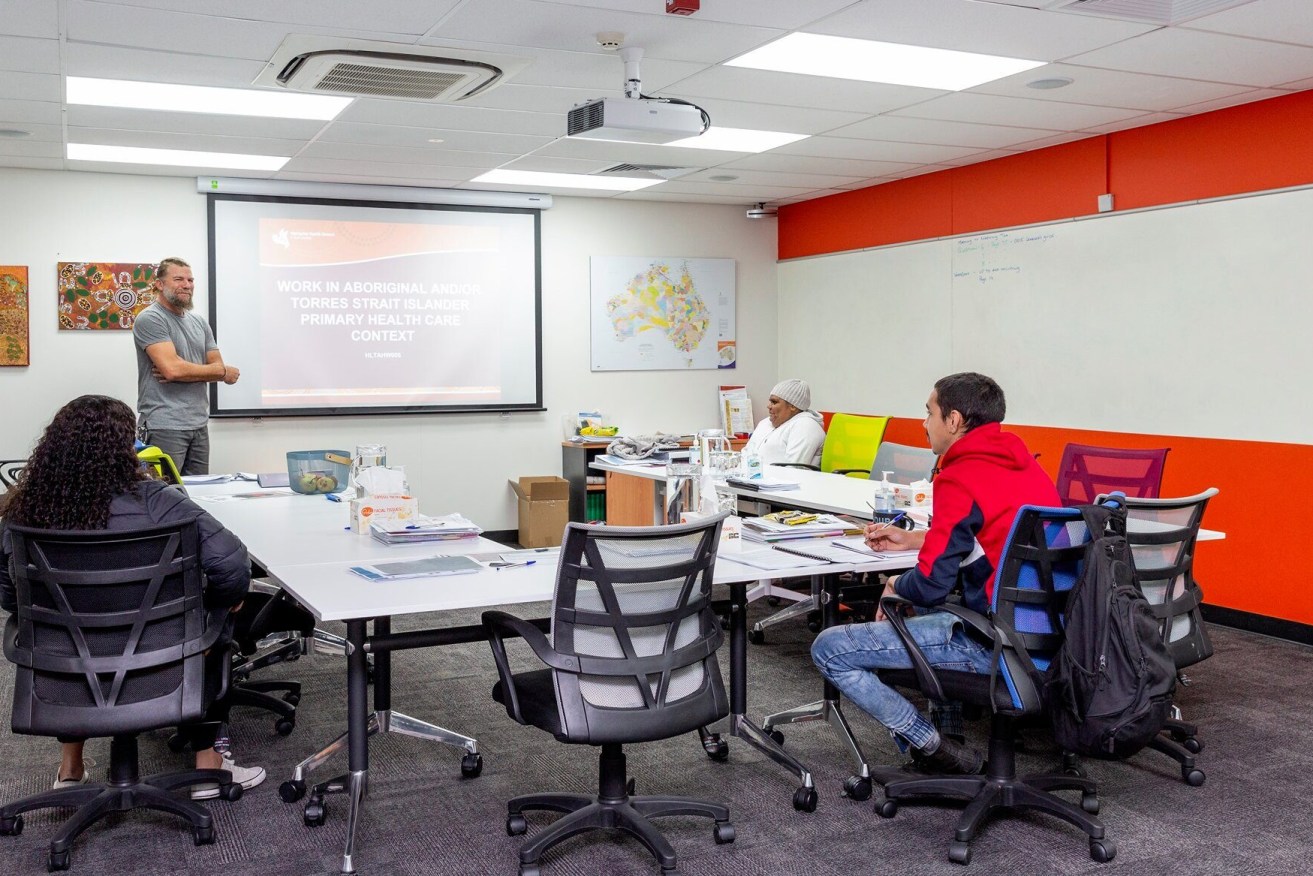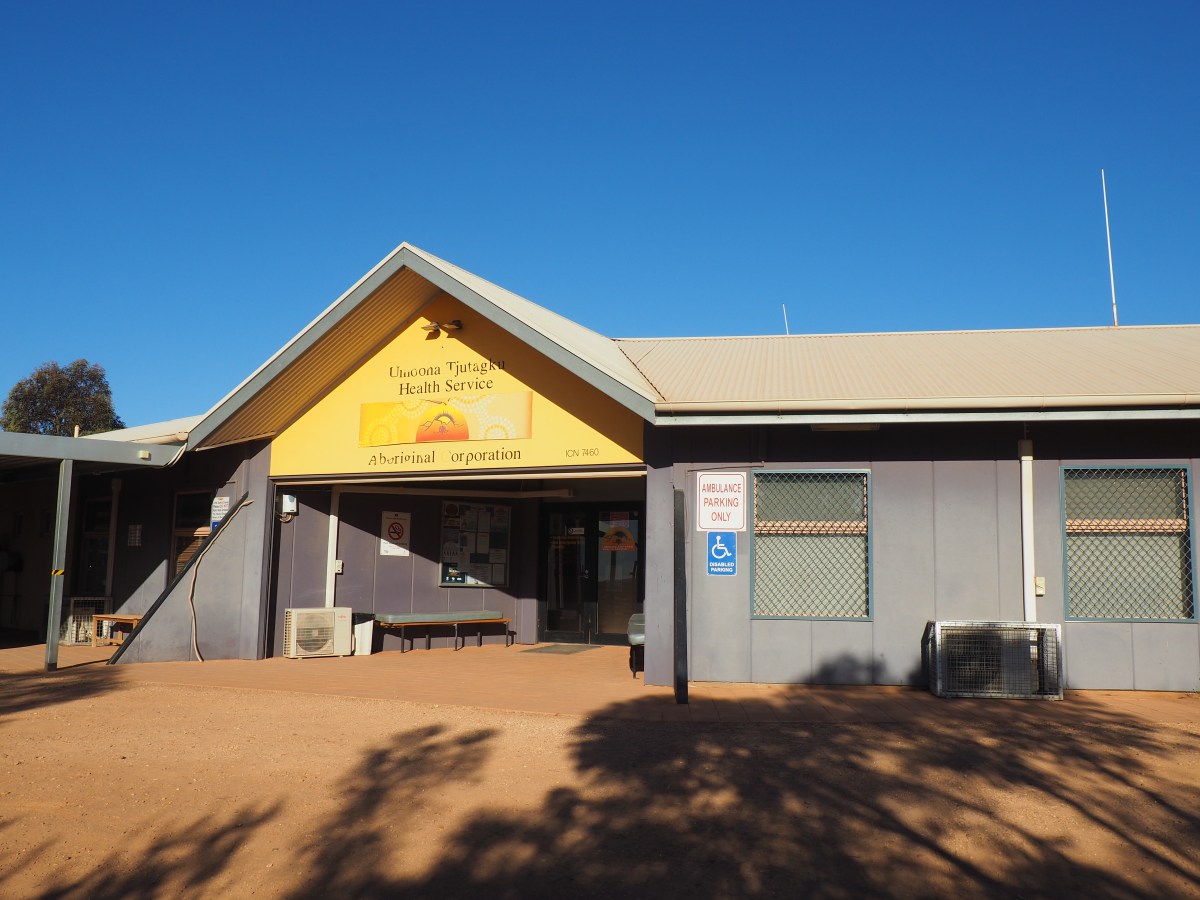Funding cut threatens SA Aboriginal health training provider
A South Australian organisation that trains aspiring Aboriginal health workers will stop accepting new students from today after its government funding dried up, prompting concerns for the future of health services in remote and regional communities.

The Aboriginal Health Council of SA says it will have to close its registered training organisation. Photo: Facebook
The Aboriginal Health Council of South Australia (AHCSA) said it now faces the “difficult decision” to close its Registered Training Organisation (RTO) after 40 years.
The council asked the state and federal governments for an additional $980,000 a year “at a bare minimum” to keep the organisation operating, but it said neither government offered support.
The lack of funding means it will stop accepting new enrolments for its Certificate III and IV courses in Aboriginal and Torres Strait Islander primary health care from today.
“This is going to put people’s health at risk because we won’t have the skilled workforce on the ground,” AHCSA’s CEO Shane Mohor told InDaily.
“It’s hard enough getting nurses, midwifes and doctors out to some communities, but if we’ve got these trained Aboriginal health workers and practitioners, we’re solving that problem for the government.”
Mohor said the RTO was the largest and only culturally-appropriate Aboriginal health worker training provider in the state, educating community members and employees from Aboriginal community-controlled health services and SA Health.
The organisation has a completion rate of 66 per cent for its Certificate III and IV courses.
On average, 11 students graduate from the Certificate III course and 12 students complete the Certificate IV course each year.
The organisation was previously funded by the federal government through its Indigenous Advancement Strategy, but that money dried up in 2020.
Since then, AHCSA has covered staff and wage costs, with student travel and accommodation covered by government subsidies.
“It’s costing us on average about $980,000 to $1 million to run it,” Mohor said.
“AHCSA’s bleeding it internally from our own budget and it’s not sustainable.”
Umoona Tjutagku Health Service Aboriginal Corporation CEO Priscilla Larkins, whose clinic services the Coober Pedy region, said the closure of AHCSA’s training organisation would have an impact on the delivery of on the ground services.
“Without professional, appropriately trained staff who want to live and work on Country, the lives (of) our community members will be put at risk. It’s as simple as that,” she said.
“The decision not to fund AHCSA’s RTO will mean that we won’t have trained health workers and then we are in breach of our contracts.”

Umoona Tjutagku Health Service Aboriginal Corporation in Coober Pedy. Photo: Stephanie Richards/InDaily
It comes after Assistant Indigenous Health Minister Malarndirri McCarthy announced in Adelaide last week that the federal government would spend $52.9 million over five years to employ 500 Aboriginal healthcare worker trainees across Australia.
She said the trainees would get Certificate III or IV qualifications to allow them to work in health settings and deliver culturally appropriate care.
Mohor said AHCSA was not consulted or offered funding by the federal government prior to the announcement.
“(The announcement) is, of course, welcomed, but as the preeminent ACCRTO (Aboriginal community controlled registered training organisation) in South Australia, we would have expected at least some engagement around this,” he said.
“In light of this uncertainty, we’ve had no option but to announce the closure of the RTO.
“The decision could, of course, be reversed, but only if appropriate and sustained funding is provided.”
Mohor said he had recently had meetings with South Australian Health Minister Chris Picton, Education Minister Blair Boyer and Aboriginal Affairs Minister Kyam Maher to try to secure state government funding, but no commitments were made.
He said removing culturally supportive training options for Aboriginal students was contrary to the state government’s commitment to Closing the Gap.
Picton said SA Health was continuing to provide annual funding to AHCSA as a peak body for Aboriginal community-controlled health services.
He said the state government provided the council with funding for services such as improving public and primary health care for Aboriginal people.
“I am advised by the Education Department that there have been no funding cuts for AHCSA RTO from Skills SA and Skills SA is actively working with AHCSA to explore funding opportunities,” he said.
“Our government will work collectively with the federal government and National Indigenous Australians Agency to review current funding arrangements and equip Aboriginal health workers with the skills they need to help remote and regional communities.
“The Malinauskas Government is also providing more funding for Aboriginal health services, delivering our election commitments to improve infrastructure for Yadu Health at Ceduna and to implement Gayle’s Law on the APY Lands.”
InDaily contacted Minister McCarthy for a response.




